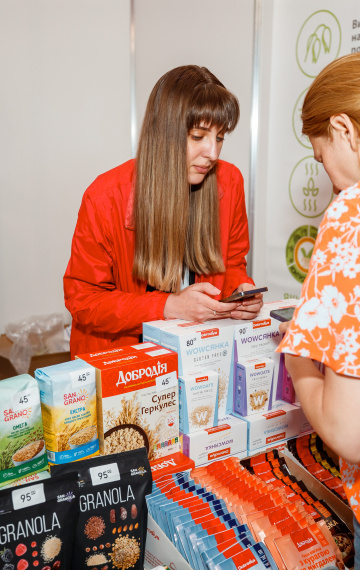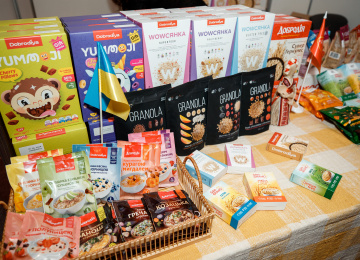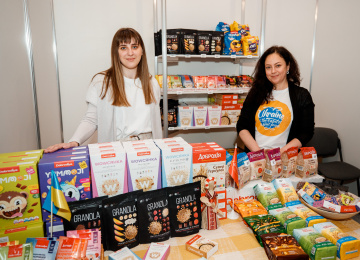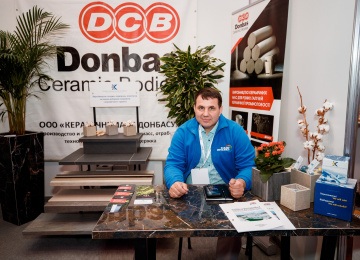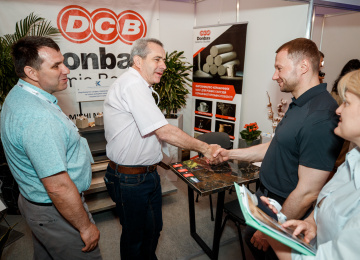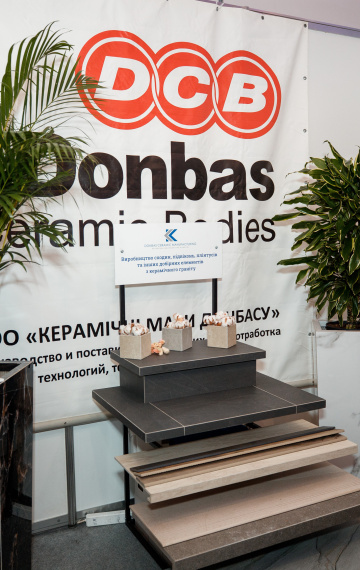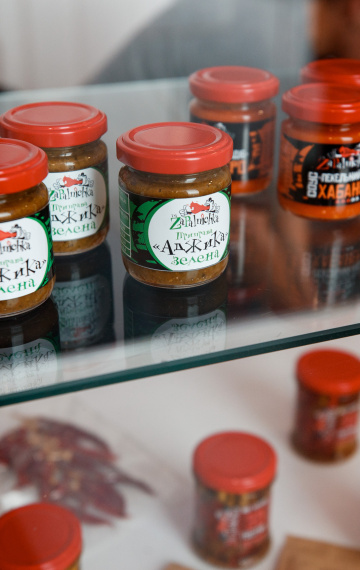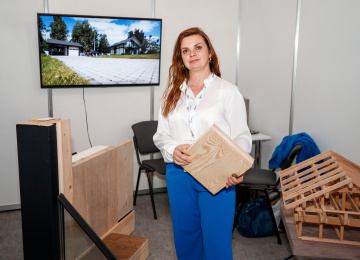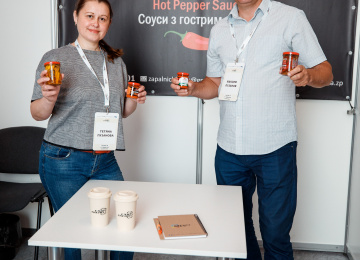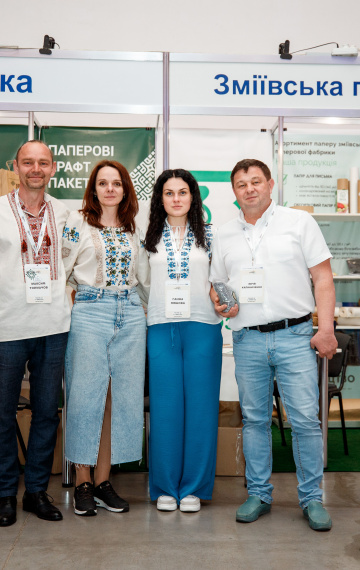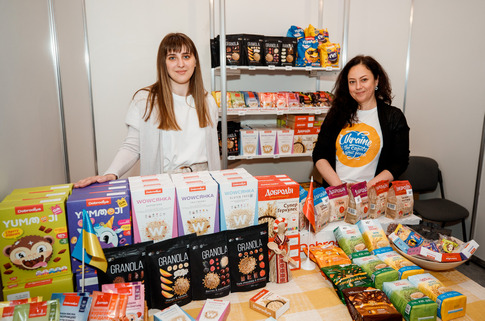
In the summer of 2023, the Mystetskyi Arsenal National Art and Culture Museum Complex in the Ukrainian capital Kyiv hosted the East Expo 2023 trade fair – an event of utmost importance for Ukraine. Supported by the EU and the United Nations Development Programme (UNDP) in Ukraine, the trade fair was held so that Ukrainian businesses that have relocated from, or are still operating in high-danger areas in direct proximity to the frontline were able to present their goods and network with potential European business partners – even amid full-scale war.
The initiative, held for the eighth time so far, brought together over 80 Ukrainian businesses. Overall, since 2017 more than 350 manufacturers have seized this opportunity to present themselves at the East Expo, with over 70% of them ending up establishing business contacts with European businesses. Overall, these events have been attended by 12,000 people.
Participation fees for East Expo 2023 were waived, with UNDP in Ukraine covering all the costs of renting a hall, logistics, creating a catalogue, and printing promotional materials.
For the dozens of entrepreneurs who participated in the East Expo 2023 trade fair, the event was more than just an exhibition platform allowing them to showcase their goods: It was an important networking platform inspiring the Ukrainian businesses to work even harder, despite all the challenges of war.
So what kind of wares did the Ukrainian entrepreneurs bring to the fair? Find out below!
Ceramic Mixtures from Donbas
Back in 2005, one-of-a-kind business (for both Ukraine and Eastern Europe overall) started production – Donbas Ceramic Bodies. This start-up manufacturer specialises in producing ceramic mixtures made of natural materials that are balanced in both composition and properties for use in a variety of industries (from construction to steel-casting). Over the years it has developed into a powerful full-cycle enterprise.
Located in Sloviansk, Donbas Ceramic Bodies has a manufacturing line capable of outputting a range of stoneware, from flowerpots and sanitary porcelain to paving stones and decorative figurines – all of European quality and with modern designs.
The plant sustained serious damage from shelling in the early days of Russia’s full-scale invasion in 2022, and the company’s management decided to relocate their employees and their families to Kyiv Oblast. But, as of today, the business is again operating in Sloviansk. Although Ukrainian forces control the city, it is plagued by constant shelling by the enemy, as the frontline is just a few dozen kilometres away.
In Ukraine, demand for the company’s products collapsed, so now the company is looking for new markets in Europe. In the meantime, it is focusing on producing stoneware items that are still in demand from Ukrainians.
“We have to show everyone that we are still in business,” says Mykhailo Melenets, the company’s director.
"(We must show people) that the areas under military occupation and those devastated by war aren’t dead, but thriving, and will remain so. And we’re one example of that.”
Dobrodiya Foods
Dobrodiya is an outstanding example of a full-cycle agribusiness that conquered the Ukrainian market and that has recently entered the Polish market with its high quality, healthy and highly processed yet nutritious foods. Dobrodiya breakfast cereals and gluten-free cereals are well known to every Ukrainian – and we believe that with the company’s participation in East Expo 2023, people in the EU will soon know and love them, too!
From the start, Dobrodiya was launched with a full-cycle production line: the company grows and harvests its own grains in Chernihiv Oblast, transforming them into their delicious breakfast cereals at their production facilities and then transporting them to their wholesale customers.
The war has affected this business twice: in 2014, when they were forced to relocate to Chernihiv Oblast, and then in the spring of 2022, when their facilities were heavily damaged during the Russian military occupation of parts of Chernihiv Oblast. Rebuilding the facilities and the farming cluster was a great challenge, but the company’s own people pitched in.
“We’re forever grateful to our brave employees who evacuated the farming machinery under heavy shelling, and hid the harvesters and tractors,” says Iryna Cherniavska, Dobrodiya’s PR director.
Today, Dobrodiya Foods once again produces breakfast cereals for millions of Ukrainians. Recently, the company drew up an expansion strategy targeting the European markets, and their cereals can already be found in the breakfast cereal aisles of Polish supermarkets.
A Home for IDPs in Just Two Days
Before the full-scale war, the GreenTec Company, which specialises in the design, production and assembly of modern prefab modular homes, was thriving. The quality of their modular homes matches that of the best of their counterparts from around the globe, but at just a fraction of the price. So GreenTec started making plans for a large-scale business expansion to the West.
But Russia’s full-scale invasion wrecked all their plans.
“We had a contract for 12 homes on our table, but those plans never came to be,” recalls Yana Kolisnychenko, a co-owner of the business.
So now GreenTec is trying to find a new niche. The company designed a prefab home for Ukrainian IDPs that can be assembled in just two days – and that can also be disassembled and transported elsewhere if necessary. GreenTec’s portfolio also includes a full-fledged modular town, featuring homes, kindergartens, and even a hospital!
Paper, Asphalt, and Paper Bags
Zmiiv Paper Factory is one of the oldest companies in Ukraine, and yet one of the most innovative. It was at this factory in Zmiiv, Kharkiv Oblast, that the first Ukrainian TetraPak recycling facility was built – and TetraPak is one of the most challenging materials to recycle.
The paper part from this packaging is used to produce craft paper and specifically branded packaging for retailers, while the inseparable plastic and aluminium components are granulated to be used in the production of household items like manhole covers and outdoor furniture. It also makes a valuable admixture to asphalt.
The Zmiiv Factory even obtained an international certificate for their pellets, offering them at half the price of those of their European counterparts. However, due to the full-scale war, the factory facilities were split up and relocated in other parts of Ukraine.
“When the hostilities broke out, which was near us, we figured that ours wasn’t the best location for equipment – despite having specialised premises with all the utility grids in place,” recalls Yuriy Kalynichenko, the director of the Zmiiv Paper Factory.
Zmiiv’s production line for paper bags was moved to Kalush in Ivano-Frankivsk Oblast, in the westernmost part of the country. Pellet production, however, was returned to Kharkiv Oblast after some time. Paper production was also restarted in Zmiiv.
East Expo 2023 was the company’s first experience of exhibiting its goods. Inspired by the experience of networking with their colleagues and potential partners at the trade fair, the staff from the Zmiiv Factory now have high hopes for the future – their own future and that of Ukraine.
ZaPalnichka
Maksym Puzanov’s small business began like those of many other businesses – Maksym, who lives in Zaporizhzhia Oblast, just wasn’t happy with the kind of goods on offer on the mass market, and decided he could do better making them himself.
Specifically, the object of Maksym’s dissatisfaction was the store selection of hot sauces, which he found underwhelming. So he decided to try making some himself – and that’s how ZaPalnichka hot sauces were born.
Initially, he bought raw materials for his hot pepper sauces from local farmers. However, he soon realised that the spiciness of the peppers sold by those farmers varied too much, so he took to growing hot peppers of his own.
“People who love good hot peppers shared seeds with me,” Maksym says. “Some friends even mailed them to me from abroad. And so, little by little, we ended up growing about 20 varieties of hot pepper.”
He says that his pepper plants (about 20,000 of them at the moment) literally saved him after the full-scale Russian invasion: the daily routine of watering and caring for his plants brought him out of his initial stupor, and a bountiful harvest forced him to go back into business.
After the full-scale Russian invasion he obtained two plots of land in a safer part of Zaporizhzhia Oblast. He then cooperated with his new neighbours to drill a borehole so that they could regain access to fresh water after the Russians blew up the Kakhovka dam – depriving the villagers of their previous source of water. After taking part in East Expo 2023, Maksym plans to expand his business and introduce European gourmets to his special-recipe hot sauces.

